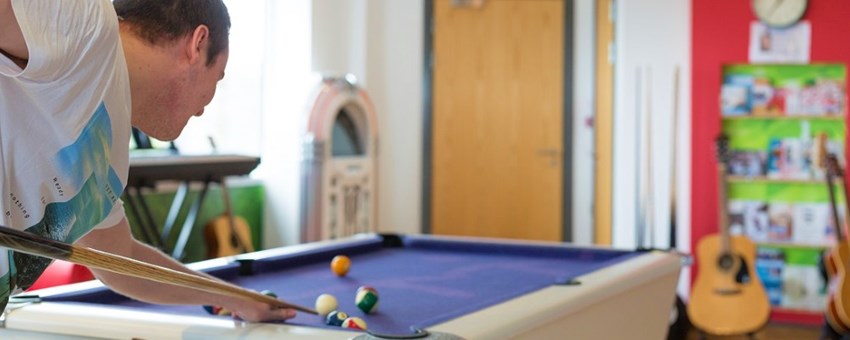Teenage and Young Adult Cancer Service
About Us
Our Approach
The Team Looking After You
Why We Created the Comfort Tote
Additional Information

The TYA Hub
The TYA Hub provides care in a relaxed, colourful and vibrant environment. There are 8 beds in the unit and a day room (the chillout zone).
The Chill Out area is a social space for young people, both in-patients and out-patients. Friends and family are welcome to use the space if they are supporting the young person or have been invited to join in with a specific activity. The space provides a fun and relaxed environment whilst in hospital. It comes fully equipped with a TV, Sky channels, computers, X-box, Playstation, musical instruments, a unit juke box, pool table, arts and crafts materials and a selection of games.
There is also a small kitchen which includes a kettle, toaster, fridge and microwave. Young people are actively encouraged to utilise the space.
The Team
Young Lives v`s Cancer Social Worker can provide emotional, practical and financial support to young people who have cancer and their families. They can provide information, advocate and liaise or signpost to other agencies on your behalf.
Young Lives v`s Cancer Social Worker can offer a care grant and have a knowledge of other charities who may be able to offer further grants and UK breaks.
Contact Us
The young person’s social worker is available Monday to Friday 9am-5pm
Emma Brady Tel: 0141 301 7680 or 07970 994 715
Email: emma.brady@younglivesvscancer.org.uk
Bryony Mellars Tel: 0141 301 7680 or 07966 460 256
Email: bryony.mellars@younglivesvscancer.org.uk
Tel: 0141 301 7680 or 07765 048 473
or visit the website: younglivesvscancer.org.uk
Teenagers and young adults have specific needs that are different to those of children or older adults. Most patients within this age group will meet one of the Clinical Nurse Specialists (CNS) for Teenagers and Young Adults with Cancer. They work across many teams and will help coordinate care.
What Do We Do For Young Patients?
- Act as a named point of contact on a day-to-day basis
- Arrange appropriate support from other professionals
- Provide ongoing information and support at all stages of your care
- Listen to your views
- Give you the opportunity to be involved in your care
- Promote your independence
- Support you in making decisions
- Help you cope with the physical, social and emotional effect of cancer and its treatment
- Communicate with your school/college/university to support you through your education
- Organise teaching programmes for schools/colleges about issues relating to cancer and young people
- Work with community teams to arrange support at home
- Visit you at home, hospital or in a place of your choice
- We will also offer advice on work, finances and other aspects of your life that can be affected by cancer.
What do we do for families?
- Provide information and support throughout treatment and beyond
- Identify and arrange other sources of support
- Explore ways to cope with the physical, emotional and social effects of having a child/brother/sister with cancer
What else do we do?
- Work closely with many teams
- Provide training in understanding the specific needs of young people
- Support staff to meet the needs of young people
- Provide regular education programmes relating to cancer and young people
- Promote changes to improve the service
- Help develop policies and guidelines for the service
- Design and develop age appropriate information
Contact Us
The clinical nurse specialists are available Monday to Friday, 9am to 5pm.
Get in touch

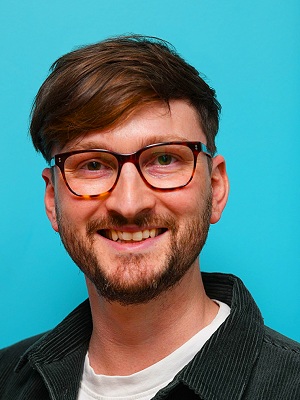
Aidan MacDonald - Teenage Cancer Trust Advanced Clinical Nurse Specialist
- Tel: 0141 301 7586 or 07534 919 338
- Page: 15007 via switchboard on 0141 301 7000
- Email: aidan.macdonald@nhs.scot
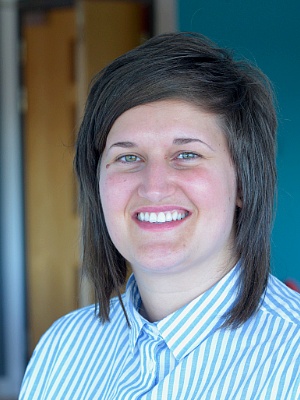
Kirsty Laing - Clinical Nurse Specialist for Teenagers and Young Adults with Cancer
- Tel: 0141 301 7616 or 07790 396 789
- Page: 15347 via switchboard on 0141 301 7000
- Email: kirsty.laing3@nhs.scot
The youth support co-ordinator (YSC) provides non-clinical support. They are responsible for arranging activities and events on and off the ward. This provides opportunities for peer support so that young people can socialise with others who have had cancer and share experiences.
The YSC is also on hand to provide emotional support by being a listening ear to in-patients and out-patients, as and when they need it. This can be on a one to one basis or in a group setting.
Contact
Samantha O'Kane
Tel: 0141 301 7139 or 07940170605
Email: ggc.youthsupportcoordinator@nhs.scot
The youth support co-ordinator is available Monday to Wednesday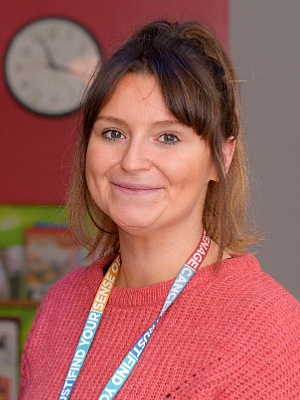
Contact
Hannah Jackson
Tel: 0141 301 7139 or 07940170605
Email: ggc.youthsupportcoordinator@nhs.scot
The youth support co-ordinator is available Thursday & Friday
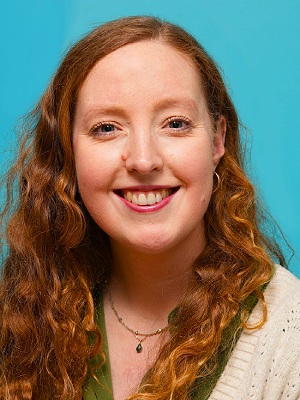
Clinical psychologists are trained to help people understand and deal with difficult emotions, thoughts and behaviours. They talk with people about issues that are important to them to help them find a way to move forward. They can help with a wide range of problems that affect quality of life or make it difficult to have medical treatment or procedures. Some of the common reasons for referral include:
- Difficulties coping with diagnosis and treatment of cancer, and anxiety about the future.
- Depression, low mood.
- Anxiety or stress, panic, phobias, including needle phobia, claustrophobia, social phobia.
- Difficulties in coping with physical symptoms such as chronic pain or fatigue.
- Difficulties coping with changes as a result of cancer or treatment, for example changes in relationships, your appearance, speech, mobility, sexual functioning.
- Cognitive assessment for issues with memory, concentration and attention.
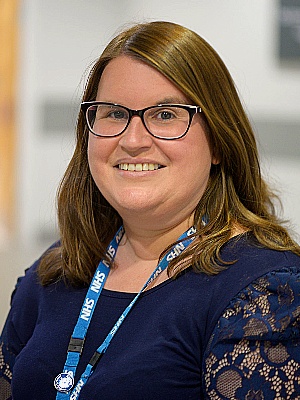
Physiotherapists are experts in finding the best and safest ways for cancer patients to be active. This may involve individual exercise programmes, referring on to activities or classes in the community or advice on everyday activities. With some cancers, research has shown that exercise can reduce the risk of it coming back and increase your chances of surviving. Keeping active can also help you to stay at or return to school/work/college. Specialist physiotherapists can also help with treatment side effects such as tiredness and pain.
Nutrition is an important part of your care and eating well can support both your treatment and recovery. However, nutritional needs specific to your cancer and treatment may differ from your usual intake or what is considered normal ‘healthy eating’.
The Dietitian is a qualified Health Professional who will give practical and personal advice to help support your nutritional wellbeing during treatment and recovery.
TBC
We also work closely with other members of the wider team. Who you’ll meet will depend on your individual needs.
- Oncology/haematology consultants
- Specialist Nurses depending on your type of cancer
- Ward Nurses
- Occupational Therapist
- Palliative Care Team

You may see some of the Teenage and Young Adult cancer team wearing NHS rainbow pride badges. The badges are just one way to show that we provide an open, non-judgemental and inclusive environment for young people that identify as LGBT+.
LGBT+ stands for lesbian, gay bisexual, transgender and the + simply means that we are inclusive of all identities, regardless of how people define themselves.
The badge is a reminder that you can talk to us about who you are and be open about your identity and how you feel. You can also come to us with any concerns or questions. We may not know all of the answers but we will listen to you, treat you with respect and do our best to help you get the right support if you need it.
Resources
https://www.teenagecancertrust.org/information/supporting-lgbtq-young-people-cancer
https://livethroughthis.co.uk/
https://www.scottishtrans.org/
The TYA Hub runs a number of activities
The Teenage Cancer Trust Youth Support Coordinators run peer support activities on the unit which have included:
These events change depending on the interests of young people currently under the service, and the YSCs are always open to suggestions for external peer support events. In addition, there are also opportunities for young people to attend residential peer support events, either through Teenage Cancer Trust (Ultimate Backstage Experience) or in partnership with charities such as Flynne's Barn (Lake District) and Ellen MacArthur Cancer Trust (Sailing Trips).
- Living with Worry and Uncertainty Workshop
- Parent/Carer Support Group
- Sibling Support Sessions
-
Beads of Courage
- Family Day
- Memory Day for families
- Side by Side Bereavement Walk
-
Seasons for Growth

